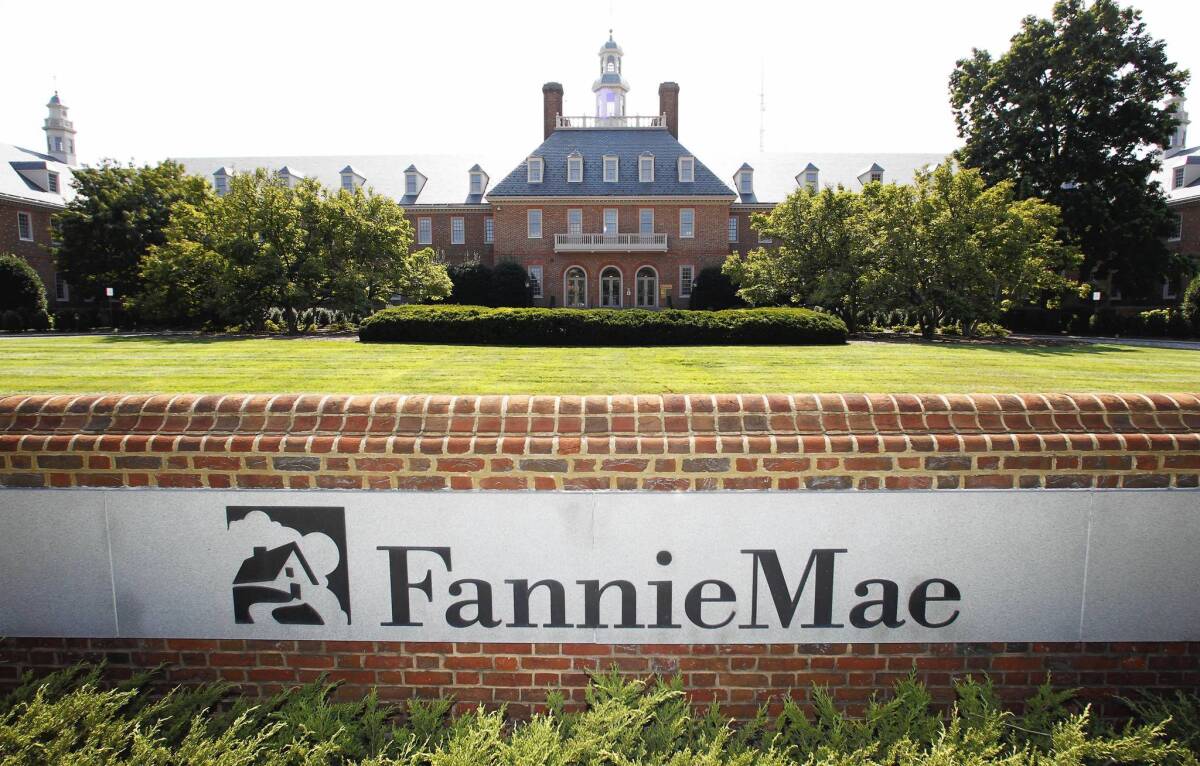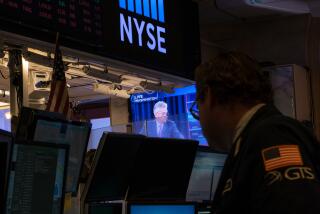Taxpayers near break-even point with Fannie, Freddie bailouts

Fannie Mae, with headquarters in Washington, above, and Freddie Mac have received about $187.5 billion in bailout money, though none since early 2012. With third-quarter dividend payments, due by the end of the year, they would have paid the government about $185.3 billion.
WASHINGTON — More than five years after the government seized Fannie Mae and Freddie Mac, taxpayers are close to breaking even on the controversial bailouts of the mortgage finance giants.
The companies said Thursday that they would make another set of large dividend payments to the Treasury after reporting third-quarter profits, continuing a turnaround fueled by the housing market rebound.
Combined, the companies have received about $187.5 billion in bailout money, though none since early 2012. With third-quarter dividend payments, due by the end of the year, they would have paid the government about $185.3 billion.
“We are quickly approaching the point when taxpayers will receive a positive return on their investment in this company,” Fannie Mae Chief Executive Tim Mayopoulos told reporters. “That’s obviously very good news for taxpayers.”
Under terms of the bailout, dividend payments by Freddie and Fannie don’t reduce the amount owed to taxpayers for the bailout. But the payments offset the bottom-line costs to the government.
Some lawmakers noted Thursday that taxpayers still are on the hook for the mortgages Fannie and Freddie own or guarantee. Along with the Federal Housing Administration, the companies support 90% of the nation’s home loans.
There is broad agreement among Democrats and Republicans that Fannie and Freddie should be dismantled, though there is no consensus on how their role in the mortgage finance system should be replaced.
“While I’m always glad when taxpayers see a return on investment, we can’t forget that Fannie and Freddie wouldn’t be earning one penny today without the government guaranteeing their transactions,” said Sen. Bob Corker (R-Tenn.), co-sponsor of a bipartisan Senate bill to replace the firms.
Freddie Mac said it would pay $30.4 billion in dividends to the Treasury after posting a $6.5-billion third-quarter profit — its eighth straight profitable quarter. That enabled it to more than offset its bailout costs.
The large payment, made possible in part because of a recalculation of the tax write-down Freddie can take on its assets, means the company will have paid $71.35 billion in dividends to the Treasury. It has received $71.34 billion in taxpayer money.
Fannie Mae posted its seventh-straight quarterly profit and will pay the government $8.6 billion in dividends.
With that payment, Fannie will have sent about $114 billion to the Treasury Department. The company has received $117.1 billion in taxpayer money.
Mayopoulos said he was confident that Fannie ultimately would end up returning more in dividends to taxpayers than the amount of money they pumped into the company and that actions the company has taken under government conservatorship “have righted the ship.”
Although the housing recovery has slowed in recent months, Mayopoulos said he expected earnings to “stay strong” for the “foreseeable future.”
But he said Fannie does not expect home prices to continue to rise at the pace they have this year, which could cause the company’s earnings to “moderate.”
The federal government seized Fannie and Freddie in 2008 to prevent their collapse amid escalating losses on bad mortgages from the subprime housing boom. As the housing market has recovered, so have the companies’ finances. Fannie has not received any government assistance since 2011, and Freddie has not received any since early 2012.
The bailouts requires the companies to pay dividends to the government. Since last year, the companies have been required to turn over all their quarterly profits to the Treasury.






